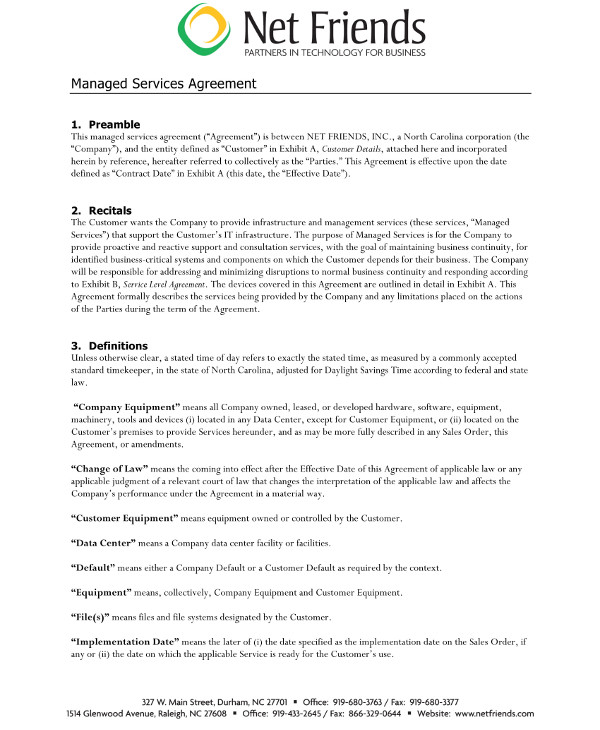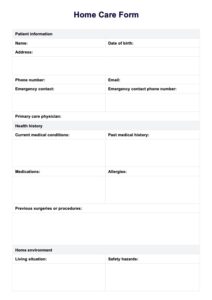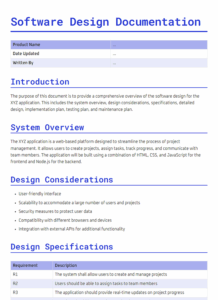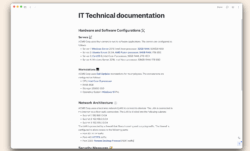Navigating the world of managed services can be an exciting journey, offering both opportunity and growth for providers and invaluable support for clients. However, the foundation of any successful managed service relationship isn’t just about delivering excellent technical support; it’s firmly rooted in a well-defined agreement. This document serves as the backbone, ensuring clarity, accountability, and mutual understanding from day one.
A carefully crafted contract isn’t merely a formality; it’s a strategic asset that safeguards the interests of both the managed service provider and the client. It lays out the expectations, responsibilities, and protections needed to foster a long-lasting and productive partnership. Without it, even the most promising relationships can quickly devolve into misunderstandings and disputes.

What to Include in Your Managed Service Provider Contract Template
When you set out to create or update your managed service provider contract template, thinking about what absolutely needs to be in there is crucial. This isn’t just about ticking boxes; it’s about building a robust framework that covers every potential scenario and protects both your business and your client’s interests. A comprehensive template ensures that nothing important gets overlooked, providing peace of mind for everyone involved.
Scope of Services
One of the most critical sections is the detailed scope of services. This needs to clearly outline exactly what services your MSP will provide, how they will be delivered, and what is explicitly excluded. Avoid vague language. Specify things like monitoring, maintenance, help desk support hours, backup solutions, security services, and any third-party software management. Equally important is stating what services are *not* included, which helps manage client expectations and prevents scope creep. For example, if on-site support is an add-on, make sure it’s noted as such or explicitly excluded from the base package.
Service Level Agreements (SLAs)
SLAs are the heart of any managed service agreement, defining the performance metrics your MSP commits to. These should be measurable and realistic. They typically cover response times for different severity levels of issues, resolution times, uptime guarantees for systems, and even reporting frequency. Clear SLAs set a standard for your service delivery and provide clients with confidence in your capabilities. It’s a promise of performance that you’ll need to live up to, so make sure they are achievable for your team.
* Initial response time for critical issues (e.g., 1 hour)
* Resolution time goals for high-priority incidents (e.g., 4 hours)
* System uptime guarantee (e.g., 99.9%)
* Scheduled maintenance windows
* Reporting on service performance
Payment Terms
This section details how and when you will be paid. Clearly state the fee structure—whether it’s a fixed monthly fee, per-user, per-device, or a combination. Include payment due dates, accepted payment methods, and any penalties for late payments. It’s also wise to outline procedures for price adjustments over time, especially for long-term contracts, considering inflation or changes in service costs. Transparency here helps avoid awkward financial conversations down the line.
Term and Termination
Define the contract’s duration, whether it’s an annual agreement that automatically renews or a month-to-month arrangement. Crucially, outline the conditions under which either party can terminate the contract. This includes notice periods required for termination, circumstances that warrant immediate termination (e.g., breach of contract, non-payment), and responsibilities of both parties during the transition period. A smooth off-boarding process is just as important as a smooth onboarding.
Confidentiality and Data Security
Given that MSPs often handle sensitive client data, strong confidentiality and data security clauses are non-negotiable. This section should obligate both parties to protect proprietary and confidential information. For data security, detail the measures your MSP will take to protect client data, including compliance with relevant data protection regulations like GDPR or CCPA, backup procedures, disaster recovery plans, and incident response protocols.
The Benefits of a Solid Managed Service Provider Contract Template
Having a robust managed service provider contract template isn’t just about legal protection; it’s a fundamental element for building trust, ensuring operational efficiency, and scaling your business effectively. It removes ambiguity and replaces it with a clear, concise framework that guides the entire client relationship. This clarity benefits everyone involved, reducing stress and increasing confidence in the partnership.
Firstly, a well-drafted contract acts as a mutual safeguard. For the client, it clearly defines the services they will receive, the expected performance levels, and their recourse if those levels aren’t met. For your managed service provider business, it protects you from unreasonable demands outside the agreed scope, outlines payment obligations, and sets limits on your liability. This balance of protection fosters a healthier, more equitable working relationship where both parties feel secure.
Moreover, a comprehensive contract template significantly reduces the likelihood of misunderstandings and disputes. When expectations are explicitly written down, there’s less room for interpretation or assumptions. This prevents potential conflicts arising from unclear service boundaries, payment terms, or response times. By addressing these points upfront, you create a transparent environment where issues can be resolved quickly, often by simply referring back to the agreed-upon terms, rather than escalating into costly disagreements.
Finally, a standardized contract template streamlines your sales process and allows for greater scalability. Instead of drafting a new agreement from scratch for every client, you have a professional, legally sound document that can be customized efficiently. This not only saves time and resources but also ensures consistency across your client base, providing a professional image and allowing your team to focus on delivering excellent service rather than getting bogged down in administrative tasks. It’s a vital tool for growth.
A strong managed service provider contract template isn’t just a legal necessity; it’s a foundational tool for building lasting client relationships and a resilient business. By meticulously outlining every aspect of your service delivery, you not only protect your interests but also establish a clear, transparent framework that fosters trust and mutual respect. This thoughtful approach ensures that both parties understand their roles and responsibilities, leading to a smoother, more successful partnership.
Ultimately, investing time and effort into creating a detailed and comprehensive agreement will pay dividends by preventing costly disputes, streamlining operations, and positioning your MSP business as a reliable and professional service provider. It’s about setting the stage for success, one clear expectation at a time, allowing you to focus on what you do best: providing exceptional IT services to your clients.



